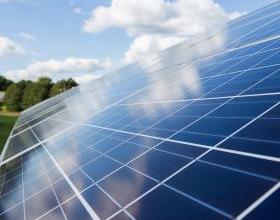Have you heard of energy communities?
The energy transition has already started in Europe and is becoming increasingly dynamic. In this sense, energy communities are born.
Local Energy Community is a new innovative modality of producing, consuming and managing energy with the participation of citizens, the administration and companies at the local level, with the aim of developing decentralized and collaborative energy projects.

This new figure, of great socio-economic value in the energy sector, represents a new actor in the broad scenario of the energy transition. Its role as facilitator offers proactive participation in the energy value chain from a local territory; with the generation of a noticeable socio-economic benefit.
Let us bear in mind that energy communities represent only one of the carriers of the development of energy efficiency, renewable energies and the energy transition in general. Although the legal and regulatory space is increasingly being enabled for energy communities to prosper, it does not have to be suitable for other types of actors in the sector.
In the process of drafting European legislation, the definitions of the energy community date back to 2016. Since then, its concept has evolved in favor of the inclusion of various contexts such as the emphasis on the creation of social and environmental value.
Main advantages of the Energy Community (CEL)
- Local economy development
- Local carbon footprint reduction
- Collective investment alternatives for the development of photovoltaic energy.
- Implementation of the project with thecommunity commitment, instead of large projects developed without the involvement of citizens.
- Possible solution to energy poverty. Energy communities can favor lower prices for neighbors with fewer resources.
- Strengthening community ties.
- Redistribution of profits, which mostly revert to the local community.
Main barriers identified
It is no less true that there are some elements that could imply a brake on the rise of local energy communities.
Beyond the possible changes in the regulations, the reduction of incentives and the very lack of a solid regulatory framework, could affect the investor perception about a project of this type or mean a real high financial risk if it is not designed correctly. Not only would you be facing a highly complex process in administrative procedures, but perhaps a possible difficulty in accessing financing.
Other negative factors could be the low interest on the part of the public, perhaps due to misinformation or the little diffusion of these possibilities due to the difficulty in accessing expert knowledge. Likewise, the lack of time for voluntary dedication or the demotivation of community members could not be ruled out.
Contact Myenergy if you want to receive professional support to create your own energy community and start saving on your electricity bill.





